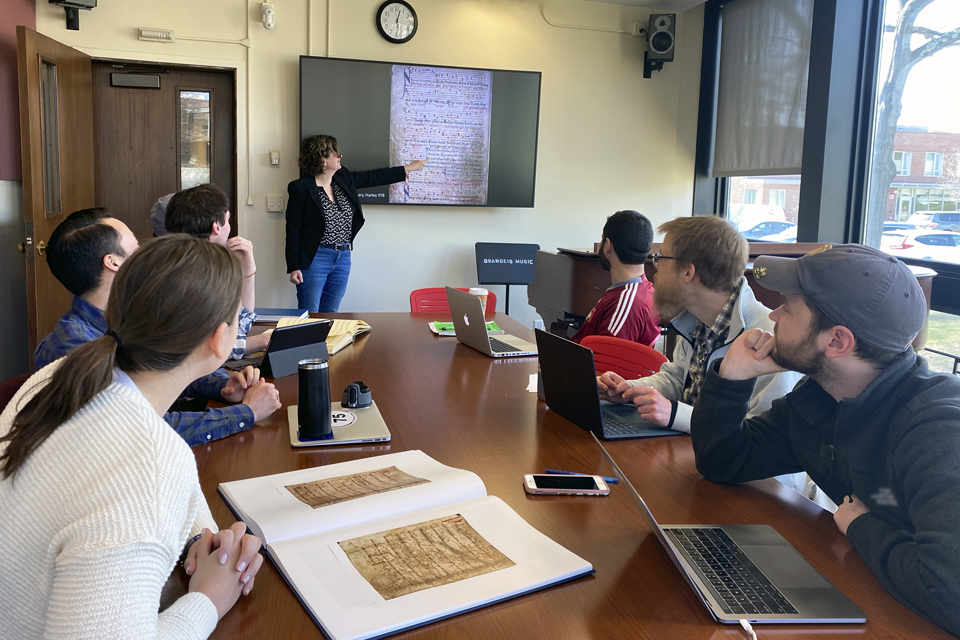Graduate Degrees
Admission into MA/MFA programs in Musicology and in Composition and Theory is open with a rolling deadline until April 1, 2026.
Admission to the PhD programs has been paused for the 2025-26 academic year.
 Professor Karen Desmond teaches a musicology seminar for graduate students.
Professor Karen Desmond teaches a musicology seminar for graduate students.
The Department of Music offers graduate programs in two areas: composition and theory, and musicology.
Composition and Theory
There are three degree programs in composition and theory:
- Master of Arts in Composition and Theory (normally one year)
- Master of Fine Arts in Composition and Theory (normally two years)
- Doctorate in Composition and Theory (PhD) (normally two or more years following the completion of MFA requirements).
The programs are designed to help students develop a command of the craft of composition. That objective is supported by studies in theory and analysis and in electro-acoustic music. Student compositions are performed in the Brand New Music concerts and by ensembles-in-residence.
Musicology
Brandeis offers two graduate degrees in musicology:
Research and teaching in our department encompass a wide range of interdisciplinary topics, from medieval notation to American musical theater, opera and performance studies, digital musicology, and many more.